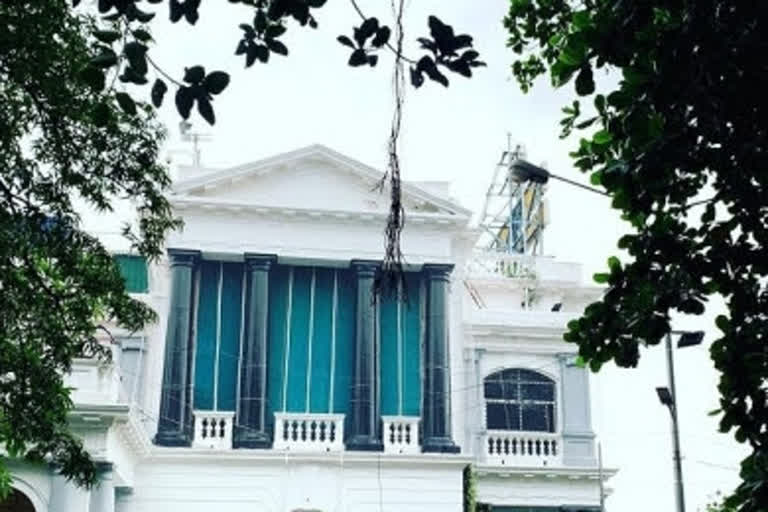Chennai: Demand for the revival of the Legislative Council, the house of elders, is gaining momentum in Tamil Nadu. There is near unanimity among the political parties on this issue with the BJP too batting for it. Ever since it was abolished by the AIADMKgovernment of MG Ramachandran in 1986, the state remains with a unicameral legislature, though the Constitution provides for a bicameral one similar to the Rajya Sabha.
A generation of electorate have no idea of the Council as they have voted only for the Assembly elections for the last 35 years. The electorate for the Council comprises the Assembly and local bodies besides, the Teachers and Graduates constituency. Also, one-sixth of the members are nominated. And Tamil Nadu is among the few states which do not have the house of elders. Now, there is a renewed interest in having the upper house back among political circles.
Read: Stalin ropes in Modi-bashing economists as advisers to revitalise Tamil Nadu economy
Established in 1861 during the colonial era, it was then an advisory body to which the Governor could appoint Indians as well. Later, with the Government of India Act, 1935, a bicameral legislature came into existence together with the Council since 1937. It had its political uses as well. In the 1952 assembly poll, no party had a majority but the Communist Party of India had the advantage of cobbling up a coalition. Rajaji, who did not contest the election was sworn in Chief Minister and became a member of the Council. He secured the support of two parties that contested against the Congress, by offering Cabinet slots to their leaders, thus becoming the first statesman to have engineered defection. Later, Annadurai, who too stayed away from the electoral contest in 1967, became the Chief Minister through the Council.
However, the year 1986 sounded the death knell for the upper house when MGR decided to abolish it. When his cabinet nominated actor 'Vennira Aadai' Nirmala, it emerged that she was insolvent. Though MGR had cleared her dues, it came to a naught. Considering it as a blow to his image, MGR then decided to do away with the Council and the then Union Government played ball as he was an ally of the Congress. It is ironic that the Congress has now pledged for its revival.
“Revival of the Council will help the ruling party and its allies to accommodate leaders who could not be given ticket in the assembly elections. It expands the largesse of the ruling party. However, it provides the possibility of having academicians and people of eminence nominated to the Council,” reasons professor Velayutham Saravanan, Centre for Jawaharlal Nehru Studies, Jamia Millia University, New Delhi.
Read: Multiple claimants for 2 ministerial berths hold up cabinet formation in Puducherry
After the MGR years, it was his successor Jayalalithaa who had stonewalled the return of the upper house. “Like her mentor, she too believed it was unnecessary. And unlike the DMK, she didn't have the burden of accommodating and satisfying too many claimants. Another reason was, unlike the Assembly, the Council is a permanent body which might prove to be an irritant,” Saravanan explained.
While pressing for its revival, D Ravikumar, MP, of the Viduthalai Chiruthaigal Katchi (VCK), has argued for proper reservation for Dalits and the Tribals in the Council as is the case in Parliament. According to him, the upper house will offer space for a detailed discussion on bills and legislations putting a brake on the ruling regime pushing them through. With a new government in place and the chorus for the Council growing louder, it remains to be seen whether the DMK keeps its poll promise.



